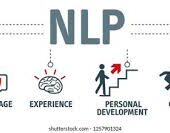Mastering AI Prompts: OpenAI’s Guide to Optimizing Reasoning Models
OpenAI has released an updated prompting guide that reveals how to get the most accurate and useful responses from its reasoning models. As AI becomes more advanced, how you ask questions significantly impacts the quality of answers. Whether you’re a developer, business leader, or researcher, these best practices will help refine your AI interactions.
Key Prompting Strategies from OpenAI
1. Simplicity Wins: Keep Prompts Direct
Overloading prompts with unnecessary instructions can confuse the model. Instead of micromanaging its reasoning, trust the AI’s built-in logic.
✅ Better:
“Analyze sales trends from this dataset.”
❌ Less Effective:
“Break down this dataset step-by-step, explain each calculation, and ensure statistical best practices are followed.”
2. Skip the “Think Step by Step” Approach
While some believe explicitly asking for reasoning helps, OpenAI found that models already optimize for logic—adding such instructions can backfire.
✅ Better:
“What’s 25% of 200?”
❌ Less Effective:
“Explain your reasoning step-by-step to calculate 25% of 200.”
Need an explanation? Ask for it after getting the answer.
3. Use Delimiters for Complex Inputs
When feeding structured data, contracts, or multi-part questions, clear separators prevent misinterpretation.
✅ Better:
Copy
Summarize the contract below: --- [Contract text] ---
❌ Less Effective:
“Summarize this contract: The first party agrees to…”
4. Limit Context in Retrieval-Augmented Tasks
When referencing external documents, only include relevant sections—too much info dilutes accuracy.
✅ Better:
“Summarize key points from Sections 2 and 3 of this report.”
❌ Less Effective:
“Read this 10-page document and summarize everything.”
5. Define Constraints for Precision
The more specific your requirements, the better the output.
✅ Better:
“Suggest a $500/month LinkedIn ad strategy for a B2B SaaS startup.”
❌ Less Effective:
“Suggest a marketing plan.”
6. Iterate for Better Results
If the first response isn’t perfect, refine your prompt with additional details.
First Attempt:
“Give me startup ideas.”
Refined Prompt:
“Suggest AI-powered B2B SaaS ideas for small business accounting.”
Why This Matters
- Reduces errors from misinterpreted prompts.
- Saves time by avoiding unnecessary clarifications.
- Improves AI utility for developers and businesses.
OpenAI’s findings show that optimized prompting = better outputs. Whether you’re integrating AI into apps or using it for research, these techniques ensure smarter, faster, and more reliable responses.
Try these strategies today—how will you refine your prompts?













